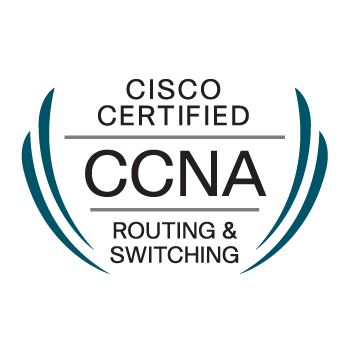- Cisco Community
- Technology and Support
- Networking
- Routing
- Not reading the USB drive on the 4431 ISR
- Subscribe to RSS Feed
- Mark Topic as New
- Mark Topic as Read
- Float this Topic for Current User
- Bookmark
- Subscribe
- Mute
- Printer Friendly Page
- Mark as New
- Bookmark
- Subscribe
- Mute
- Subscribe to RSS Feed
- Permalink
- Report Inappropriate Content
10-24-2023 07:14 AM
We are having to upgrade our code on our router due to a published vulnerability. What we typically do in this situation is burn the required image to a USB stick and then watch it when we put it in the router, and the router will give you back "Usbflash0: added" typically.
For some reason on the 4431 model we have inserted the USB stick with the file loaded on it, but we have no indication from the console output (after issuing a "term mon" on the SSH session we are monitoring the router with) that the USB stick was ever inserted.
We tested it on a Cisco switch and it does see the USB stick added (it takes about a 10 second delay and then the console message appears).
I am trying to figure out if:
a) we are unable to use the USB slot on the 4431, and
b) the only way to get the image to the router is via TFTP or another secure file transfer protocol?
Thanks for any response(s)!
KMNRuser
Solved! Go to Solution.
- Labels:
-
ISR 4000 Series
Accepted Solutions
- Mark as New
- Bookmark
- Subscribe
- Mute
- Subscribe to RSS Feed
- Permalink
- Report Inappropriate Content
04-03-2025 02:20 PM
ISR routers only seem to support USB drives with 1GB or 2GB maximum sizes formatted for FAT. It does not support FAT32 used by larger USB drives. If you have a larger drive, you can plug it into windows and go to "Create and Format Hard Disk Partitions" in the control panel (aka FDISK), delete the existing FAT32 partitions, and create a simple 1 or 2 GB FAT partition. Then the ISR router will recognize it.
- Mark as New
- Bookmark
- Subscribe
- Mute
- Subscribe to RSS Feed
- Permalink
- Report Inappropriate Content
10-24-2023 07:46 AM
Hello @KMNRuser,
USB flash drive need to be a FAT file system, not FAT32.
You should use TFTP or SCP as secure transfer protocole.
.ı|ı.ı|ı. If This Helps, Please Rate .ı|ı.ı|ı.
- Mark as New
- Bookmark
- Subscribe
- Mute
- Subscribe to RSS Feed
- Permalink
- Report Inappropriate Content
10-24-2023 11:28 AM
I've seen mixed results with various USB flash drives. I would just try another flash drive. Alternatively, you could run an SFTP server on your machine and connect directly to the device and then just SFTP the file over. I do that quite often.
- Mark as New
- Bookmark
- Subscribe
- Mute
- Subscribe to RSS Feed
- Permalink
- Report Inappropriate Content
10-24-2023 04:27 PM
Not all USB flash are supported with the router.
For the routers, I find Toshiba-branded USB flash drive consistently compatible.
- Mark as New
- Bookmark
- Subscribe
- Mute
- Subscribe to RSS Feed
- Permalink
- Report Inappropriate Content
10-26-2023 05:33 AM
In addition to the point made by M02@rt37 , try formatting the USB drive on the device being upgraded first. Then you can take it to a workstation and copy the file to it. It is an imprecise solution along the lines of "Nuke it from orbit, only way to be sure", but I have had success with it.
- Mark as New
- Bookmark
- Subscribe
- Mute
- Subscribe to RSS Feed
- Permalink
- Report Inappropriate Content
10-26-2023 06:24 AM
Good call, and yes I've done the same and that will many times yield the needed results!
- Mark as New
- Bookmark
- Subscribe
- Mute
- Subscribe to RSS Feed
- Permalink
- Report Inappropriate Content
10-26-2023 12:50 PM
Elliot,
Thanks for your response. I like the idea. Let me give that a try and I will post out the results.
- Mark as New
- Bookmark
- Subscribe
- Mute
- Subscribe to RSS Feed
- Permalink
- Report Inappropriate Content
10-26-2023 01:12 PM
Elliot,
Unfortunately i took a brand new USB and i did place it in one of the two USB slots on the 4431 chassis, but the box does not see it. I even did a "sho file systems" command, but i do not see any usbflash0: in there..
- Mark as New
- Bookmark
- Subscribe
- Mute
- Subscribe to RSS Feed
- Permalink
- Report Inappropriate Content
04-03-2025 02:20 PM
ISR routers only seem to support USB drives with 1GB or 2GB maximum sizes formatted for FAT. It does not support FAT32 used by larger USB drives. If you have a larger drive, you can plug it into windows and go to "Create and Format Hard Disk Partitions" in the control panel (aka FDISK), delete the existing FAT32 partitions, and create a simple 1 or 2 GB FAT partition. Then the ISR router will recognize it.
Discover and save your favorite ideas. Come back to expert answers, step-by-step guides, recent topics, and more.
New here? Get started with these tips. How to use Community New member guide





